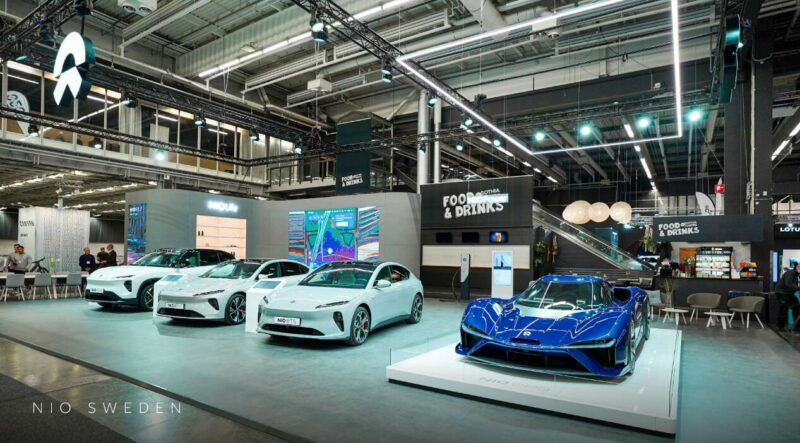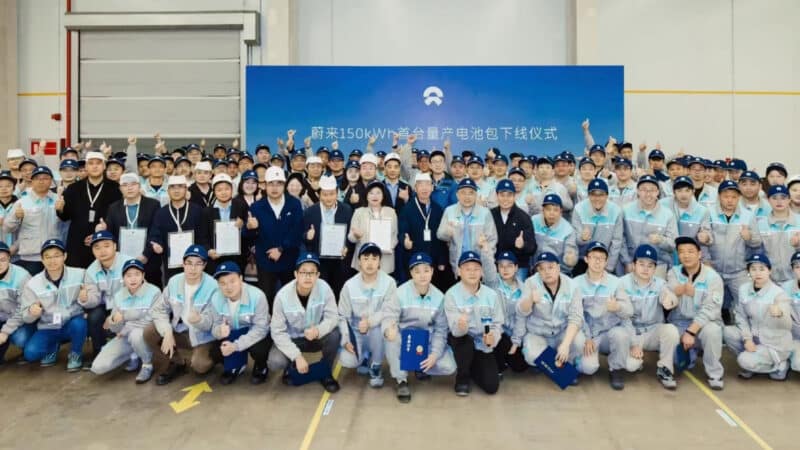Chinese startup Nio rolled out the first mass-produced semi-solid battery pack, which will be available as a part of the battery swap service in a few months. This battery offers an energy density of 260 Wh/kg and provides a range of up to 1,055 km.

Nio is a high-end electric car brand founded in 2014. Currently, its cars are mostly offered with two battery options: 75 kWh and 100 kWh. Customers can also buy a car without a battery by picking a battery as a service subscription with a monthly payment. Soon, Nio-branded vehicles will also get one more battery option for long trips, which offers a capacity of 150 kWh. It will be available only via subscription. The mass production of this battery pack has started in China.
Nio 150 kWh battery

After the first announcement in 2021, Nio has finally started mass production of the 150-kWh semi-solid battery (SSB). It was designed by WeLion New Energy Technology, a Beijing-based battery maker that also acts as Nio’s battery cell supplier.
According to Nio, the 150 kWh SSB cells have an energy density of 360 Wh/kg. And the whole pack has a 260 Wh/kg density. Another feature of this pack is a cooling system that is six times stronger compared to ordinary batteries. The weight of the 150 kWh SSB is just 676 kg, which is just 20 kg more than the Nio’s 100 kWh battery pack. For comparison, the 135.5 kWh LFP battery from BYD weighs 903 kg. So, WeLion and Nio did a great job reducing the weight of their SSB.
Nio didn’t disclose when exactly the 150 kWh SSB will go live. However, Nio said on social media that the official launch is scheduled for the second quarter of this year. The mass production start hints the 150 kWh SSB will become available at Nio’s Power Swap Stations (PPS) in a few months. The best time for the launch is summer when many tourists visit Xinjiang, a western Chinese province.

Previously, Nio co-founder and CEO William Li tested the Nio ET7 sedan with the 150-kWh semi-solid battery on board. He drove 1,044 km on a single charge with 3% battery capacity remaining. During the test event, William Li shared that this battery was previously tested on a route from Kunming to Beihai, traveling 1,145 km on a charge. It is the world record for a mass-produced electric vehicle.
Source: Weibo



